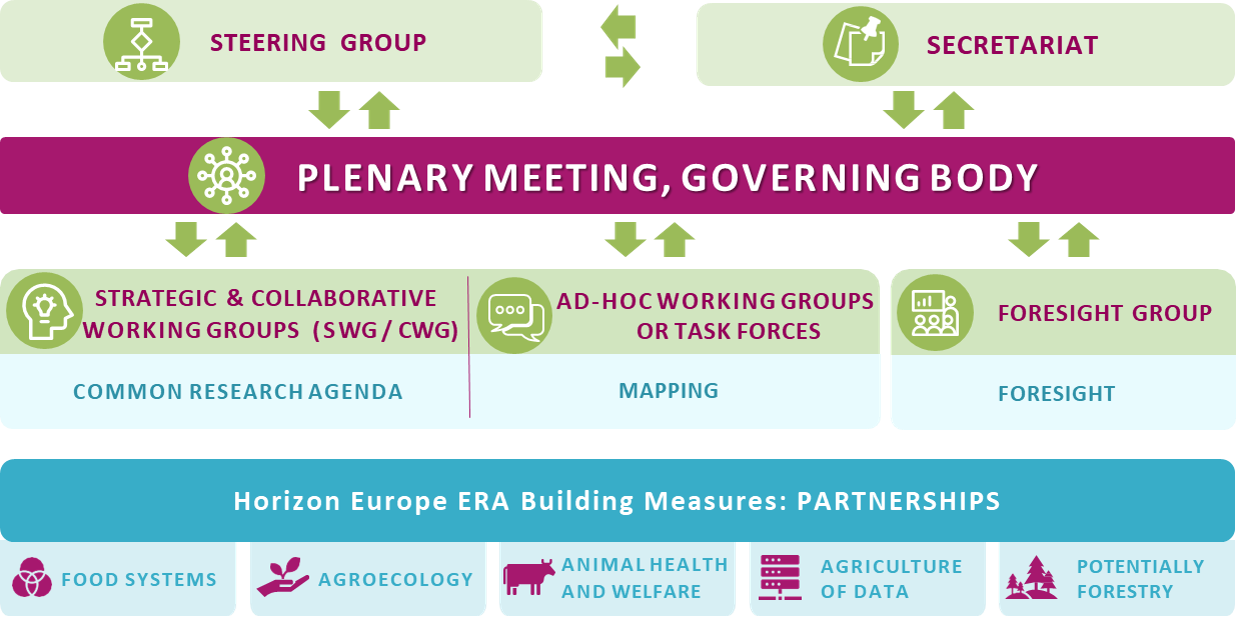

More than 35 countries:
European Commission

The Plenary Meeting is the SCAR’s governing body. It brings together delegates representing more than 35 countries. The Plenary Meeting decides on the actions that should be taken to achieve its goals, including the creation of new Working Groups and approving their mandates. It also discusses and advises on proposals made by the Working Groups, and it reports to the EC and European Parliament about its decisions.
The Steering Group and the SCAR Secretariat prepare the plenary meetings and align the agenda with the current EU Presidency priorities. In doing so, they ensure alignment with the Horizon programmes.
The Working Groups are the backbone of the SCAR. Focusing on specific priority areas, they provide policy advice, highlight priority R&I topics based on needs and gaps, and develop strategic R&I agendas. Three kinds of Working Groups exist: Collaborative Working Groups, with a focus on thematic coordination, and Strategic Working Groups with a focus on strategic policy advice. If necessary, the Plenary Meeting can also create Ad-hoc Working Groups to tackle specific challenges.
The SCAR Foresight Group continuously scans the horizon for future opportunities and challenges to develop an integrated European Research and Innovation Agenda. Every few years, the Group publishes a report that analyses a specific challenge that the wider bioeconomy is facing, and that provides recommendations to tackle it. The foresight report feeds the strategic planning of research and innovation and is a source of advice for policy-making. The SCAR foresight process has paved and will continue to pave the way for joint activities between Member States to proactively solve future challenges.